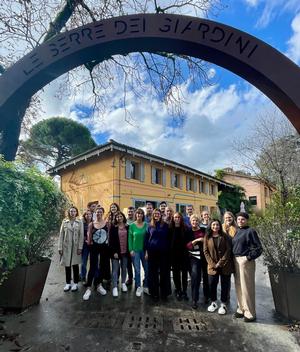ENTRACK: Insights from the Third General Assembly

During the third General Assembly of the ENTRACK project, held in Bologna on October 17–18, discussions focused on the progress of activities, challenges encountered, and next steps to facilitate the energy transition in selected areas through the involvement of local communities and European partners
The ENTRACK consortium meeting provided an opportunity to share new tools and outcomes developed within the project. Specifically, the taxonomy of plans, strategies, and social energy policies from the EU to the municipal level was finalized. This document analyzes social energy policies at various levels, from the EU to the municipal level, with a focus on Portugal, Spain, Italy, and Greece, where the project’s pilot municipalities are located. It highlights the influence of the Paris Agreement and the 2030 Agenda, as well as the top-down structure of policies, where local directives rarely influence national or European ones. The research distinguishes between "direct" and "parallel" policy connections, underscoring how the predominance of environmental and climate policies is crucial for vulnerable Mediterranean regions, contributing to the discussion on fairer and more sustainable energy transitions.
In addition to this document, the stakeholder matrix and engagement pathways were also shared. This document presents the stakeholder matrix and engagement pathways for various groups involved in the ENTRACK project, aiming to ensure an inclusive approach in the co-design of social energy policies. The analysis, conducted in Portugal, Spain, Italy, and Greece, identified 45 types of stakeholders, with a prevalence of the public sector and limited representation from academia. The pathways undertaken by MRP and the Communities of Practice proved particularly effective in engaging public entities, municipalities, NGOs, and associations.
Finally, the report on stakeholder interview results and the report on citizens’ perceptions, needs, and priorities regarding energy transitions were illustrated. In the first case, results from semi-structured interviews conducted with various political, administrative, and civil society stakeholders in the eight rural pilot municipalities highlighted a diversity of knowledge on the current energy plan landscape, reflecting which stakeholder groups are involved or even aware of current policies and initiatives. In the second case, the results of ethnographic research conducted by the Climate Explorers, exploring perceptions, behaviors, and challenges of communities regarding energy use and sustainability in rural regions, clearly showed that economic barriers are one of the main obstacles to energy transition and that there is a gap between the needs perceived by the community and the actual support from institutions.
In conclusion, the analyses and tools developed have provided new perspectives for addressing the project’s upcoming challenges in an inclusive and effective way, such as co-designing energy plans, and have laid the foundation for future discussions within the Municipal-Regional Partnerships.
 Print
Print